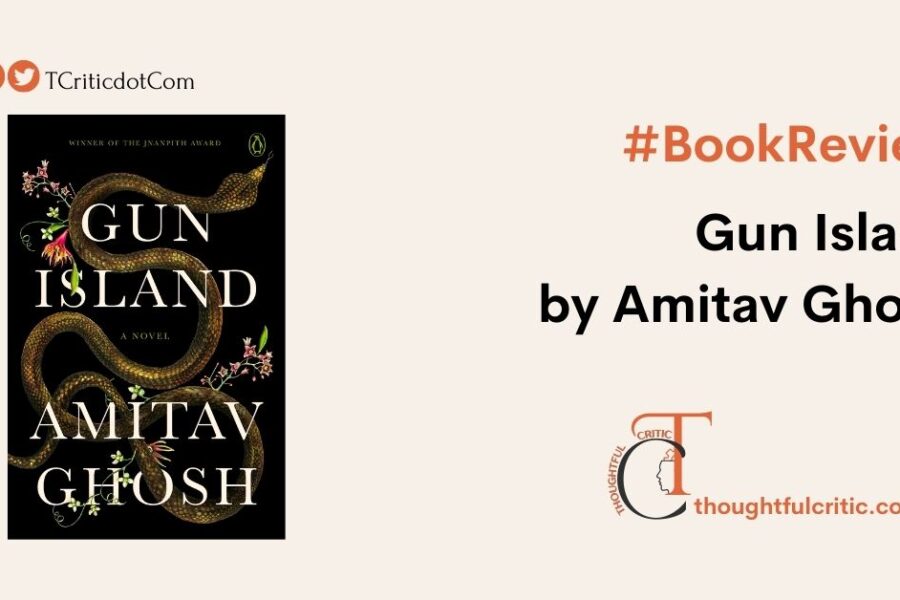Before the Coffee Gets Cold, to say in a straightforward way, is a captivating and thought-provoking novel written by Toshikazu Kawaguchi, a Japanese novelist. It was first published in 2015, and the book seamlessly weaves the genres of magical realism and contemporary fiction, making it a unique and memorable reading experience. Anyone who has gone through the novel, from the first to the last page, may agree with the assessments made right at the beginning of this book review article. However, let me make it clear at the outset that the novel may not be suitable for everyone. It might not conform to the contemporary reading habits of youths. The slow progress may hamper readers’ concentration at times. However, it does offer a thought-provoking literary experience if you are patient enough to let the novelist tell his story. So, if you are ready, read this book review of Before the Coffee Gets Cold by Kawaguchi.
So, first, let’s discuss what happens in the novel Before the Coffee Gets Cold.
Set in a cosy little café named Funiculi Funicula, tucked away in the heart of Tokyo, the novel revolves around a mysterious time-travelling chair hidden in a corner of the café. The chair is no simple chair. It has magical powers as you may see in science fiction movies. It grants visitors the ability to travel through time but with one significant caveat: they can only travel to the past, and they must return to the present before their coffee gets cold. The narrative is divided into four interconnected stories, each centred around a different character seeking solace, closure, or redemption by using the chair to revisit pivotal moments in their lives. Here are the brief summaries of every character’s motifs in the novel:
1. Fumiko Kiyokawa’s Story: Fumiko, a regular customer at the café, decides to time travel to the past in an attempt to reunite with her boyfriend, who abruptly left her years ago without explanation. Through her journey, she discovers the importance of embracing the present and finding closure. Fumiko’s story is emotional and may resonate with young readers at large.
2. Kohtake Hirai’s Story: Like Fumiko, Kohtake’s story is also about love and emotional reunion… however, with a difference. Kohtake wishes to see his wife one last time before her memories fade away due to Alzheimer’s disease. He ventures back in time to share a heartfelt conversation with her and learns the significance of cherishing the moments they had together. This episode may convey the message of the importance of living in the present and living to the full potential (as much as you can).
3. Yasue Hanazawa’s Story: Yasue desires to reconcile with her sister, whom she left behind after a bitter family dispute. With the help of the time-travelling chair, she strives to heal their fractured relationship and find forgiveness before it’s too late. This one, like the previous two stories, is also emotional and conveys important messages to readers.
4. Kei Tokita’s Story: Kei, the younger sister of the café’s manager, has her own secret reasons for wanting to travel through time. Her journey explores the complexities of family bonds and the power of acceptance.
Throughout the novel, the characters grapple with their past decisions and emotions, seeking resolution and understanding as they utilise the chair’s magical abilities. Their journeys demonstrate the significance of living in the present, letting go of regrets, and cherishing the connections that shape their lives. The time-travelling element serves as a catalyst for introspection and personal growth, ultimately reminding readers of the importance of embracing life’s fleeting moments before they slip away like a cup of coffee gone cold.
Critical Analysis of the Novel and the Novelist’s writing style:
The first thing I would like to discuss is the writing style of the novelist. Kawaguchi’s writing style is beautifully descriptive, painting vivid scenes that effortlessly transport readers to the quaint café and the various time periods explored in the book. The prose is delicate, enhancing the emotional depth of the characters and their struggles. Each character’s journey is meticulously crafted, providing a window into their past experiences, regrets, and desires. And everything appears in the best order, in harmony and symmetry that elevates the experience of readers.
Talking about the themes of the novel, one cannot help himself but appreciate the author’s exploration of the complexities of human relationships and the consequences of our actions. The way the author has treated these serious issues is truly commendable. The stories touch on themes of love, loss, forgiveness, and the passage of time. Kawaguchi artfully raises philosophical questions about the nature of regret, the importance of seizing the present, and the profound impact of even the smallest actions on the course of one’s life. It is a blend of philosophy, psychology, elementary spirituality and human Karma…
And I would also like to mention that Before the Coffee Gets Cold effectively captures the essence of Tokyo and Japanese culture, which adds an extra layer of authenticity to the narrative. The novel offers a glimpse into the city’s bustling life, traditional rituals, and the enduring values of family and honour.
And summing it up together, one of the book’s strongest attributes is its ability to evoke a range of emotions. As readers follow the characters on their emotional journeys, they are likely to experience joy, heartache, and introspection. The novel’s heartwarming moments are balanced with bittersweet realisations, leaving a lasting impact on readers’ hearts and minds.
Well, things are not only shiny and we do have to acknowledge the seamy side. In the case of this bestselling and genuinely thought-provoking work of literature, there are a few things that might hinder all readers from enjoying this novel. Let’s begin with the pace of the novel. For some readers, the pacing might feel slow, particularly in the initial chapters where the rules of time travel and the café’s ambience are established. Also, the interconnected structure of the four stories might leave some readers yearning for a more cohesive narrative. Moreover, the book’s magical realism aspect might not resonate with everyone. Some readers may find it difficult to suspend their disbelief and fully immerse themselves in the time-travelling elements of the story. However, these things may bar only the readers who have intuned themselves to reading contemporary fiction that moves very fast. Readers who are open to reading different kinds of fiction will rejoice in reading this masterpiece.
In conclusion, Before the Coffee Gets Cold is a tender and enchanting novel that skillfully explores the complexities of human existence through the lens of time travel. Toshikazu Kawaguchi’s evocative writing, well-developed characters, and thoughtful exploration of universal themes make this book a compelling and unforgettable read. Despite some minor pacing issues and a potentially divisive magical realism element, the novel’s strengths outweigh its weaknesses, making it a worthwhile addition to any bookshelf.
Click here to buy the novel from Amazon India
Review by Ashish for ThoughtfulCritic
Before the Coffee Gets Cold by Toshikazu Kawaguchi: Book Review
-
Thoughtful Critic Rating
Summary
Before the Coffee Gets Cold by Kawaguchi opens up a magical portal that aids the escape of readers interested in serious works of literary fiction in this commercially charged world of literature. At the same time, the novel might not offer something to everyone. Contemporary readers will certainly struggle to keep pace with the novel. Those who are patient and understand how literature functions may rejoice…




